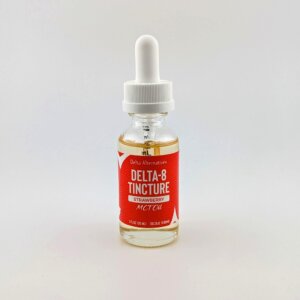We deliver to you every day from 8:00 to 20:00
- 2023
- 利用するACCESS-DEF 日本語試験情報 - CyberArk Defender Accessについて心配はいりません 🐛 「 ACCESS-DEF 」を無料でダウンロード⮆ www.goshiken.com ⮄で検索するだけACCESS-DEF勉強時間
- C_TS4FI_2020試験の準備方法|権威のあるC_TS4FI_2020 最新知識試験|信頼的なSAP Certified Application Associate - SAP S/4HANA for Financial Accounting Associates (SAP S/4HANA 2020) テスト内容 🚐 ウェブサイト“ www.goshiken.com ”を開き、「 C_TS4FI_2020 」を検索して無料でダウンロードしてくださいC_TS4FI_2020日本語練習問題
- gumm
- tinct
- cart
- tincture
The best discounts this week
Every week you can find the best discounts here.
Grape Pie – THCa Rosin [1g]
Infused Cooking Olive Oil HHC Tincture [1500mg]
Peppermint Olive Oil HHC Tincture [1500mg]
Strawberry MCT HHC Tincture [1500mg]
Strawberry MCT HHC Tincture [1500mg]
Infused Cooking MCT Oil Delta-8 Tincture [1500mg]
Infused Cooking Olive Oil Delta-8 Tincture [1500mg]
Strawberry MCT Delta-8 Tincture [1500mg]
Delta 8 is a compound found in hemp plants that have gained popularity in the wellness industry for its potential health benefits. Sciatica is a common condition characterized by pain, numbness, or tingling in the lower back and legs. There have been some claims that Delta 8 may help alleviate symptoms of sciatica.
However, more research is needed to confirm its efficacy in treating this condition. It’s important to note that Delta 8 is a relatively new substance and its long-term effects are not fully understood. Before using Delta 8 for sciatica or any other condition, it is recommended to consult with a healthcare professional.
Does Delta 8 Help With Sciatica?
Delta 8 is a minor cannabinoid found in hemp plants and is one of the many compounds that make up the hemp plant. It is a close relative of Delta 9 tetrahydrocannabinol (THC), the compound responsible for the “high” associated with marijuana. Unlike Delta 9 THC, Delta 8 has a lower potency and produces milder effects. It is believed to have the potential to provide pain relief, reduce anxiety, and improve mood without causing the intense psychoactive effects of Delta 9 THC.
Delta 8 is available in various forms including oils, tinctures, gummies, and vape cartridges, and is legal in the United States as long as it contains less than 0.3% Delta 9 THC. It is important to note that the legality of Delta 8 and its long-term effects are still being studied and more research is needed to fully understand its potential benefits and drawbacks.
How Does Delta 8 Interact With The Endocannabinoid System?
The endocannabinoid system (ECS) is a complex network of receptors, enzymes, and molecules that play a role in regulating various functions in the body, including pain, mood, sleep, and appetite. Delta 8 interacts with the ECS by binding to the CB1 and CB2 receptors, which are found in various parts of the body. When Delta 8 binds to these receptors, it can help to modulate various functions in the body and produce therapeutic effects.
The exact mechanism by which Delta 8 interacts with the ECS is not fully understood, but it is believed that its interaction with the CB1 and CB2 receptors plays a role in its potential health benefits. It’s important to note that while Delta 8 has the potential to provide therapeutic benefits, more research is needed to fully understand its interactions with the ECS and its long-term effects.
What Is Sciatica?
Sciatica is a condition characterized by pain, numbness, or tingling in the lower back and legs. It is caused by compression or irritation of the sciatic nerve, which is the largest nerve in the body and runs from the lower back down the legs. Sciatica can be caused by a variety of underlying conditions, including herniated discs, spinal stenosis, spinal arthritis, or degenerative disc disease.
Symptoms of sciatica can range from a mild ache to severe pain and can be accompanied by muscle weakness, difficulty moving the affected limb, and difficulty standing or sitting for long periods of time. The severity and duration of sciatica can vary depending on the underlying cause and can be managed through a combination of physical therapy, pain management, and in some cases, surgery. It’s important to consult a healthcare professional for an accurate diagnosis and appropriate treatment plan.
Delta 8 Dosage Based On Tolerance Levels
The ideal delta 8 dosage depends on several factors including an individual’s tolerance level, age, weight, and the condition being treated. For most people, a low to moderate dose of delta 8 is recommended to start with, such as 5-20 mg. It’s important to start with a low dose and gradually increase it as needed to minimize the risk of adverse effects.

People with a low tolerance for THC and other cannabinoids may need to start with even lower doses and proceed with caution. On the other hand, people with a high tolerance for THC and other cannabinoids may need higher doses to achieve the desired effect. It is important to remember that delta 8 is a relatively new substance and its effects can vary greatly from person to person. It’s always best to consult with a healthcare professional before starting any new supplement regimen.
How Does Delta 8 Help With Sciatica?
Delta 8 has been suggested to help with sciatica by reducing pain, and inflammation, and improving mood. The exact mechanism by which Delta 8 may help alleviate sciatica symptoms is not fully understood, but its interaction with the endocannabinoid system (ECS) may play a role. When delta 8 binds to the CB1 and CB2 receptors in the ECS, it can help to modulate pain signals and reduce inflammation, potentially leading to a reduction in sciatica pain.
Additionally, Delta 8 has been shown to have anxiolytic and mood-enhancing effects, which can also help to alleviate symptoms of sciatica by reducing stress and improving overall well-being. It’s important to note that while there is some evidence suggesting that Delta 8 may help with sciatica, more research is needed to fully understand its effects and determine the most effective dosages for this condition. As with any new supplement, it’s always best to consult with a healthcare professional before starting a Delta 8 regimen for sciatica.
Frequently Asked Questions
- How Long Do Delta 8 Tinctures Last After Being Opened?
Delta 8 tinctures can last several months to a year after being opened if stored properly in a cool, dry place away from light and moisture. The shelf life of delta 8 tinctures can be prolonged by refrigeration.
However, it’s important to pay attention to the expiration date and any noticeable changes in color, aroma, or consistency, which may indicate that the tincture has degraded and is no longer safe for consumption. As a general rule, opened tinctures should be used within 6-12 months for optimal quality and effectiveness.
- Can You Mix Delta 8 In Your Food?
Yes, delta 8 can be mixed in food and drinks, as it is available in various forms including tinctures, gummies, and oils. Mixing delta 8 with food or drink can help to mask its taste and make it easier to consume.
However, it is important to keep in mind that the rate of absorption may be slower and the effects may be less potent when taken orally as opposed to sublingually or through inhalation. It is always best to consult a healthcare professional for guidance on the best method of consumption and the appropriate dose.
- Can Delta 8 Help Reduce Sciatica Symptoms?
Delta 8 has been suggested to reduce sciatica symptoms by reducing pain and inflammation, and improving mood. Its interaction with the endocannabinoid system (ECS) may play a role in modulating pain signals and reducing inflammation.
However, more research is needed to fully understand its effects on sciatica and determine the most effective dosages for this condition. It is important to consult a healthcare professional before starting a delta 8 regimen for sciatica.
The Final Verdict – Does Delta 8 Help With Sciatica?
In conclusion, while there is some evidence to suggest that delta 8 may help with sciatica by reducing pain and inflammation, and improving mood, more research is needed to fully understand its effects and determine the most effective dosages. It’s important to consult a healthcare professional before starting a delta 8 regimen for sciatica and to always use it under the guidance of a medical professional.
All products are Federal Farm Bill Compliant and contain less than 0.3% THC
FDA DISCLOSURE: The statements regarding these products have not been evaluated by the FDA. These products are not intended to diagnose, treat, cure or prevent any disease, consult your health physician before use. The Federal Food, Drug and Cosmetic Act requires placement of this notice.












You must be logged in to post a comment.